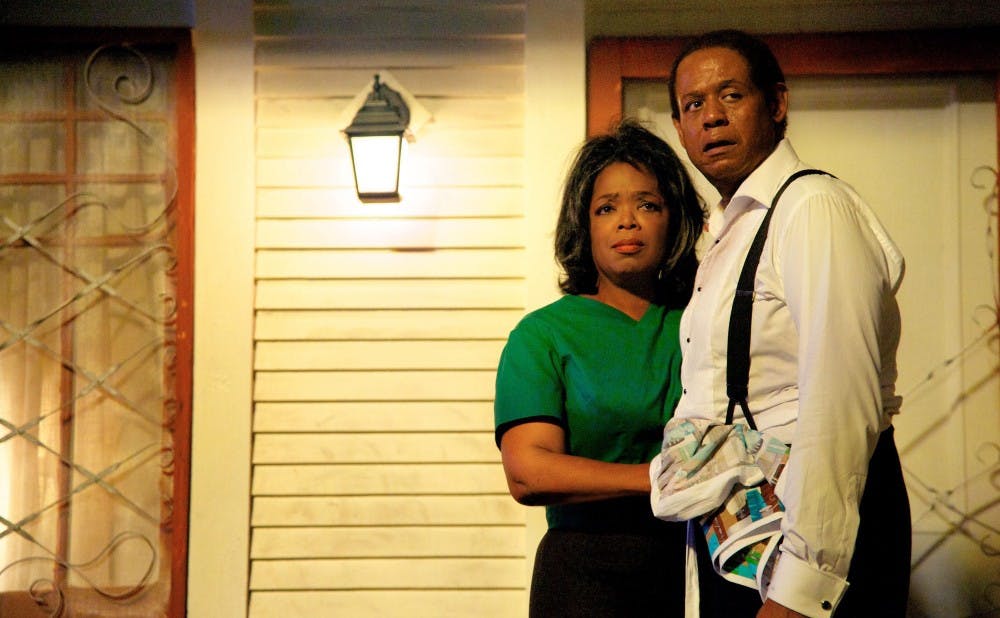“Lee Daniels’ The Butler,” starring Forest Whitaker in the title role, tells a story of race in America and culminates with (spoiler!) the election of Barack Obama in 2008. Through the experiences of one man and his family, “The Butler” provides a quality, albeit rushed, two-hour history refresher about how the status of African Americans in American society has changed.
Although the content tried to be moving, it was far from a tearjerker. Hyper-stylized voiceovers popped up throughout the film and jolted me away from what was actually going on. Grainy 1950s-era shots of the White House were spliced in between clear HD footage of actors, and the predominantly all-star cast, including James Marsden as John F. Kennedy and Robin Williams as Dwight Eisenhower, distract from what should have been a compelling story.
The most bizarre casting was Oprah as Gloria Gaines, the protagonist’s wife. Oprah’s acting was very poor, and even worse, her Oprah-ness distracted me from what should have been a dynamic portrait of an African American wife. Instead of processing Gloria’s warning to her son about questioning white men because of what had just happened to Emmett Till, I was thinking about how weird it was that Oprah was portraying anyone but herself. At the end of the film, the camera showed a summer barbecue for supporters of Barack Obama and then panned to a misshapen Oprah wearing a substantial amount of makeup intended to make her look extremely elderly. I burst out in laughter because the makeup made her look more like Horace Slughorn from Harry Potter, which probably was not the intended reaction.
For the purposes of this film, though, it is clearly understood why Oprah was cast—she is easily one of the most successful African-Americans in the United States. It carries a great deal of meaning to watch Oprah portray a "normal" woman carving out her place during the more tumultuous times of recent.
I have a love-hate relationship with all-star casts in general. It makes sense why they are so popular: they bring in the big bucks, and they generally increase a film’s probability of winning flashy honors and awards (which bring in more money). It’s also fun to see Mariah Carey as a grown man’s mother (even though they look nothing alike) and Oprah as his wife.
But all-star casts fall flat when it comes to the telling of the actual story. Instead of obtaining any understanding of race in America, I spent the majority of the film thinking about how funny it was that Severus Snape (Alan Rickman’s Ronald Reagan) was holding hands with Jane Fonda, who played Nancy Reagan, or wondering who in their right mind thought it would be an okay idea to cast John Cusack as Richard Nixon, but I digress.
“The Butler” is a heartwarming film, but ultimately I felt too distracted by the clumsy acting and the questionable casting in order to pay adequate attention to its storyline.
Get The Chronicle straight to your inbox
Sign up for our weekly newsletter. Cancel at any time.

